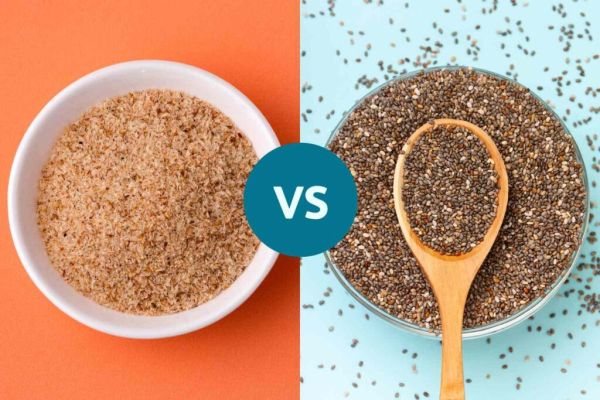How Staying Hydrated in Cold Weather Supports Fertility Health
Pregatips | November 16, 2025 2:39 PM CST

Winter, a season of comfort and cosiness, also presents a hidden fertility challenge: dehydration. The cold weather often leads to a decrease in water intake, yet our bodies continue to lose fluids through breath, urine, and indoor heating. This imbalance may not trigger thirst, but it significantly affects your hormones, egg and sperm health, and overall fertility in India. Understanding this connection between hydration and fertility in winter can empower you to take proactive steps to maintain your reproductive health.
This imbalance may not make you feel thirsty, but it affects your hormones, egg and sperm health, and overall fertility health. Simply put: hydration and fertility are deeply connected, even in cold weather.
Why Water Is Crucial for Reproductive Health
Water forms the basis of nearly every biological process in your body — from hormone transportation to cell growth. When it comes to reproduction, its role becomes even more vital.
Proper hydration helps to:
- Transport hormones like FSH, LH, and estrogen that regulate ovulation.
- Support egg and sperm health through better oxygenation and detoxification.
- Maintain cervical mucus, which assists sperm movement.
- Improve uterine lining receptivity for implantation.
- Regulate temperature, preventing internal stress.
How Cold Weather Disrupts HydrationDehydration is only a summer concern. But in reality, winter can cause it more subtly. The cold air outside, dry indoor heat, and reduced thirst response together lead to gradual fluid loss.
Additionally, Indian winters often bring heavier meals, more caffeine, and fewer raw fruits and vegetables, all of which reduce hydration. This combination can quietly affect your water and reproductive health.
How Dehydration Impacts Fertility in WomenWomen’s reproductive health depends on consistent hydration because their cycles and hormones are more fluid-dependent.
- Hormone Regulation: Water plays a crucial role in facilitating the smooth transport of hormones through the bloodstream. A dehydrated body may delay or disturb ovulation due to slower communication between the brain (HPO axis) and ovaries. Understanding this can help you realise that maintaining proper hydration levels is a simple yet effective way to take better care of your reproductive health.
- Cervical Mucus: Hydration determines the texture and volume of cervical mucus. When you drink less water, the mucus becomes thick and sticky, making it difficult for sperm to reach the egg.
- Egg Quality and Uterine Lining: Water supports oxygen supply and nutrient flow to the ovaries and the uterus. Dehydration reduces blood volume and can affect egg quality or endometrial growth.
- PMS and Cramps: Low hydration worsens water retention and cramps, making cycles more painful and irregular.
How Dehydration Affects Male FertilityFor men, water supports both hormone production and sperm health. The impact of winter dehydration on fertility issues in men is often underestimated.
- Semen Quality: Semen is 90–95% water. Dehydration can significantly reduce semen volume and concentration, thereby lowering sperm motility and the ability to fertilise an egg. It underscores the crucial role of hydration in maintaining male fertility.
- Sperm Health: Toxins and free radicals harm sperm DNA. Proper hydration helps the body flush out toxins, keeping sperm cells healthy.
- Testosterone and Hormonal Balance: Hydration supports the endocrine system. Low water levels affect testosterone production, leading to reduced libido and sperm production.
- Blood Flow to Reproductive Organs: Adequate water intake supports strong blood circulation, which is essential for sperm production and erectile health.
Benefits of Staying Hydrated for Fertility
- Improves Hormone Delivery: Ensures smooth communication between the hypothalamus, pituitary gland, and reproductive organs.
- Enhances Egg and Sperm Quality: Hydration nourishes cells, improving their structure and function.
- Boosts Cervical Mucus and Semen Volume: Both are key for fertilisation.
- Supports Implantation: A hydrated uterus improves the chances of successful embryo attachment.
- Reduces Stress and Fatigue: Water supports energy metabolism and helps the body better handle fertility treatments or emotional stress.
How Much Water Is Enough for Fertility HealthAim for 2.5–3 litres (8–10 glasses) of total fluids per day. It includes plain water, soups, coconut water, herbal teas, and water-rich foods. Divide your intake evenly. Sipping throughout the day is more effective than gulping down at once. For those undergoing fertility treatments, doctors often recommend slightly higher hydration levels for better ovarian and uterine response.
Hydration Tips to Boost Fertility in Cold Weather
- Start Your Day Right: Begin each morning with a glass of lukewarm water and lemon or jeera for gentle detoxification.
- Choose Warm Beverages Wisely: Herbal teas (like tulsi, chamomile, or cinnamon) hydrate and soothe without caffeine.
- Add Hydration-Rich Foods: Include soups, stews, oranges, spinach, bottle gourd, and carrots in your diet.
- Track Water Intake: Use reminders or hydration apps to meet your daily goals.
- Limit Caffeine and Alcohol: They’re diuretics — replacing them with water-based drinks keeps your hydration balanced.
- Hydrate Before and After Exercise: Even light yoga or walking causes moisture loss. Drink before and after activity.
- Stay Warm, Not Overheated: Excessive layering can cause sweating and water loss. Choose breathable fabrics.
Hydration-Friendly Indian Foods
- Moong Dal Soup: High in protein and water
- Vegetable Khichdi: Easy to digest and hydrating
- Coconut Water: Natural electrolyte replenisher
- Buttermilk (Chaas): Keeps gut health balanced
- Fruits: Oranges, apples, guava, and papaya provide water and antioxidants
For women, consistent hydration supports balanced hormone levels, regular ovulation, and a receptive uterine environment. For men, it maintains optimal semen volume, high sperm motility, and stable testosterone production. In couples trying to conceive, it becomes a shared foundation for reproductive vitality and overall well-being.
Winter dehydration often creeps in unnoticed, but its effects can ripple through your fertility journey, affecting everything from egg and sperm quality to mood, energy, and hormonal stability. By staying mindful of your fluid intake, choosing hydrating foods, and creating simple routines that make hydration part of your lifestyle, you’re giving your body one of the most natural fertility boosts possible.
You’re not alone in your journey when trying to conceive. Join our supportive community to connect with others, share experiences, and find encouragement every step of the way.
FAQs on How Staying Hydrated in Cold Weather Supports Fertility Health
Yes. Water is essential for hormone transport, sperm and egg quality, and uterine health. Even mild dehydration can interfere with these reproductive processes.
Proper hydration supports the hormonal system, increases cervical mucus, and enhances blood flow to reproductive organs, all of which improve fertility outcomes.
Sip warm water or herbal teas, add soups to meals, and set small reminders. Pair every snack with a glass of water.
Fruits like oranges, amla, and cucumber, plus soups, dals, and buttermilk — all hydrate while providing vitamins that improve reproductive health.
Yes. Dehydration can reduce uterine lining quality and egg health. Staying hydrated helps improve hormonal responses and implantation outcomes.
READ NEXT
-
Know which is the superfood for digestion – Obnews

-
Steam is effective not only in treating cold and cough but also in enhancing the beauty of the face, know its method.

-
Reforming Punjab Education System: Training in Finland

-
Rashmika Mandanna’s shocking statement – Men should also suffer from period pain!

-
Bay leaf is not only beneficial for taste but also for health, know the correct way of consumption.
